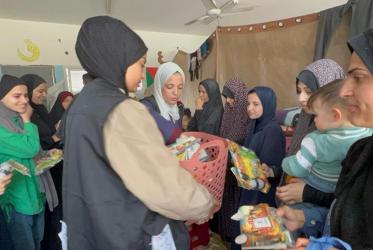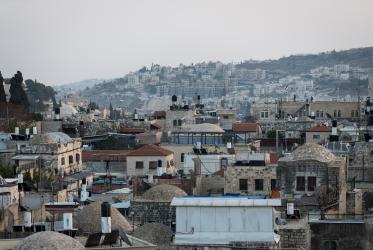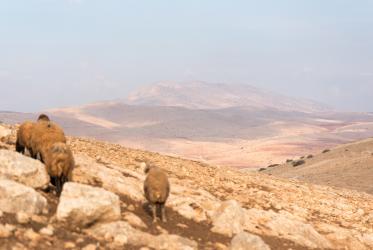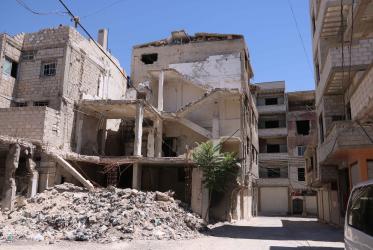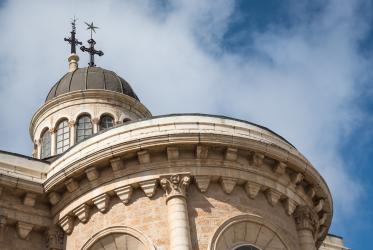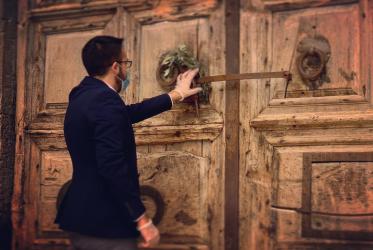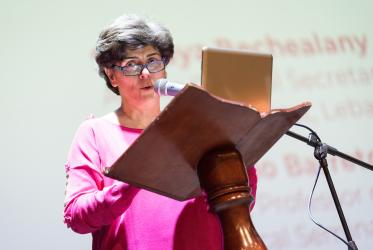Displaying 1 - 20 of 35
21 March 2024
Women and children in Gaza bearing brunt of ongoing war
16 January 2024
WCC calls for immediate end to brutal violence in Gaza
30 December 2023
Displaced people south of Gaza face extreme difficulty
21 December 2023
Dr Saïd Ailabouni: God is on the side of rejected, oppressed, occupied
12 September 2019



